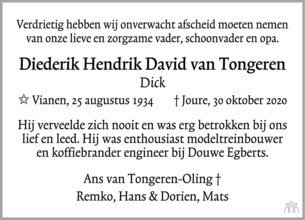Please note that the content of this book primarily consists of articles available from Wikipedia or other free sources online. Chapters: Wilhelm R ntgen, Piet de Jong, Cornelis Hulsman, Demy de Zeeuw, Corine Dorland, Arend Lijphart, Ans Schut, Patrick Bakker, Willem van Zeist, Bloem de Ligny, Peter Bosz, Thom Karremans, Marc Bolland, U ur Y ld r m, Floris de Vries, Diederik Hol. Diederik Maarten Samsom (Dutch pronunciation: ˈdidəˌrɪk ˈmaːrtən ˈsɑmsɔm; born 10 July 1971) is a Dutch environmentalist and retired politician who served the Labour Party (Partij van de Arbeid PvdA) from 2012 to 2016. He was the first leader in the 70 year history of the PvdA to have been voted out of his position by party members. Rink 'Rien' van der Velde (born 21 February 1957) is a Dutch politician. He was a member of the House of Representatives of the Netherlands for the Labour Party between 25 October 2016 and 23 March 2017.
Create a free QxMD account to take advantage of the features offered by Read like saving your papers and creating collections.
BACKGROUND: Early mobilisation after stroke is thought to contribute to the effects of stroke-unit care; however, the intervention is poorly defined and not underpinned by strong evidence. We aimed to compare the effectiveness of frequent, higher dose, very early mobilisation with usual care after stroke.


METHODS: We did this parallel-group, single-blind, randomised controlled trial at 56 acute stroke units in five countries. Patients (aged ≥18 years) with ischaemic or haemorrhagic stroke, first or recurrent, who met physiological criteria were randomly assigned (1:1), via a web-based computer generated block randomisation procedure (block size of six), to receive usual stroke-unit care alone or very early mobilisation in addition to usual care. Treatment with recombinant tissue plasminogen activator was allowed. Randomisation was stratified by study site and stroke severity. Patients, outcome assessors, and investigators involved in trial and data management were masked to treatment allocation. The primary outcome was a favourable outcome 3 months after stroke, defined as a modified Rankin Scale score of 0-2. We did analysis on an intention-to-treat basis. The trial is registered with the Australian New Zealand Clinical Trials Registry, number ACTRN12606000185561.

FINDINGS: Between July 18, 2006, and Oct 16, 2014, we randomly assigned 2104 patients to receive either very early mobilisation (n=1054) or usual care (n=1050); 2083 (99%) patients were included in the 3 month follow-up assessment. 965 (92%) patients were mobilised within 24 h in the very early mobilisation group compared with 623 (59%) patients in the usual care group. Fewer patients in the very early mobilisation group had a favourable outcome than those in the usual care group (n=480 [46%] vs n=525 [50%]; adjusted odds ratio [OR] 0·73, 95% CI 0·59-0·90; p=0·004). 88 (8%) patients died in the very early mobilisation group compared with 72 (7%) patients in the usual care group (OR 1·34, 95% CI 0·93-1·93, p=0·113). 201 (19%) patients in the very early mobilisation group and 208 (20%) of those in the usual care group had a non-fatal serious adverse event, with no reduction in immobility-related complications with very early mobilisation.
INTERPRETATION: First mobilisation took place within 24 h for most patients in this trial. The higher dose, very early mobilisation protocol was associated with a reduction in the odds of a favourable outcome at 3 months. Early mobilisation after stroke is recommended in many clinical practice guidelines worldwide, and our findings should affect clinical practice by refining present guidelines; however, clinical recommendations should be informed by future analyses of dose-response associations.
FUNDING: National Health and Medical Research Council, Singapore Health, Chest Heart and Stroke Scotland, Northern Ireland Chest Heart and Stroke, UK Stroke Association, National Institute of Health Research.
Full Text Links
Discussion
You are not logged in. Sign Up or Log In to join the discussion.
Related Papers
Diederick Bruins Slot
Want full text access to this paper?
Diederik Bruins Sloth
Use Read by QxMD to access full text via your institution or open access sources.
Diederik Bruins Slot Machine
Read also provides personalized recommendations to keep you up to date in your field.
New to Read
